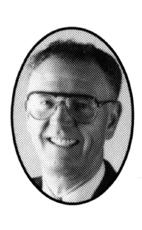Mr. Speaker, I would like to carry on from the minister's comments. I, as much as anyone, wish this inquiry had been concluded a year ago. I certainly do not want to see it extended forever but I do want to see the answers come out. I think it is vital that the inquiry be allowed to complete its business.
I want to go on record and recognize the excellent work our armed forces do. They have been committed in any number of places, uncomfortable, dangerous and far flung. They have committed themselves time and time again to the duty to which they have been assigned. When they commit themselves, they commit themselves very well. It works.
Therefore I think it is a shame that unhappily the Somali debacle has cast a cloud over the whole military force, even for me. After 36 years of service in the air force I left very proud of my service there. I was a senior officer when I left and now I find that people who know this almost ask the question "were you one of those who covers up and does not accept responsibility and does this?" Most
senior officers do accept their responsibilities. They are good leaders.
The people who have unhappily been accused in this instance are left sort of hanging out to dry unless their case can be heard in completeness and therefore they can be found either absolutely innocent of any wrongdoing or be found to have been inadequate in some way.
The Liberal government initially resisted the inquiry being compiled at all. It said no, the situation is being investigated by the defence department. It was only when Major Armstrong came forth in November 1994 that the Minister of National Defence at that time was forced to order an inquiry. Even then with the interlude of the Christmas break it was sometime in the following year before he did it and he announced it as an inquiry under the National Defence Act. This means that once again the inquiry would be conducted behind closed doors. It would not be open to the public.
On March 20 I demanded in this House that the investigation be held under the Inquiries Act rather than the National Defence Act. The next day the minister, and I congratulate him for doing so, saw the wisdom of this and changed the inquiry to come under the Inquiries Act, which made it open to the public.
Now we are having the inquiry curtailed when it gets into the final stages of its job. First of all, it was supposed to investigate the deployment to Somali before the predeployment phase, the during phase and the post phase, the after phase. It has completed the predeployment phase. It is nearing the end of its investigation into the deployment phase. But it will not be able to investigate the post-deployment phase because of the arbitrary curtailment of the inquiry put in by the Minister of National Defence.
I see this as blatant political interference in a judicial inquiry. The minister by his action is denying people who have had accusations flung against them to be heard in full, to have justice done them. That seems unfair. Justice Latourneau has said that if he cannot hear people, he will make no judgment. I think that is absolutely right. If we have not given people a chance to testify to be heard, to be examined, then it is not fair to find them.
What this means is that there may be people who are responsible and were responsible who will not be held accountable for their actions. I think that is not fair.
Also, look at what this decision is going to mean to future inquiries. What will people say when they are asked to participate on an inquiry? They will say "Am I going to get two-thirds of the inquiry? Will I involve myself in this thing which might turn out to be a fiasco that is cut short because of the arbitrary whim of some political minister?" If that does happen, we are going to lose in Canada a tremendous capability to examine and assure that justice is being done in all aspects of government. It goes to the integrity, the impartiality and the independence of the commission.
The minister mentioned in his comments if the Reform Party wanted to suggest to the commissioners some witnesses we think they should hear. To me that is me interfering with the inquiry. The commissioners have established a standing for various people. I assume they have done that in recognition of the information and the facts this individual has to present to the commission and others have been denied. It is not for me to tell the commissioners how to do their job.
Mr. Speaker, I neglected to mention that I will be splitting my time with the member for Edmonton Southwest.

